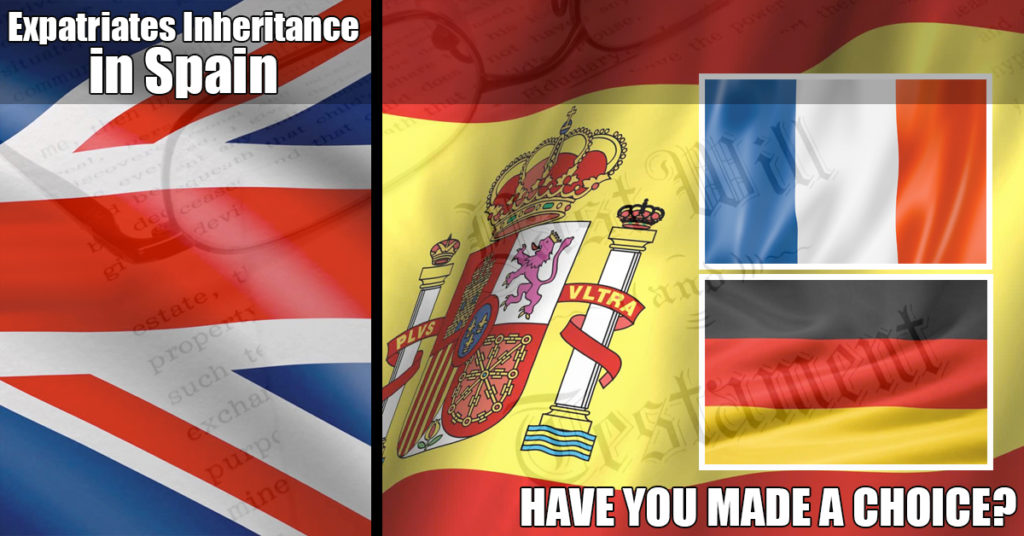Question: Dear lawyer,
I am a British expat living in Jalon, Costa Blanca North, for just over a year. I would like to get a better understanding of succession and wills in Spain please.
Dear reader, thank you for your enquiry.
Spanish Law allows the succession to be ordered and the assets distributed by means of a Will. However, there is no absolute freedom to testate, as the Spanish Civil Code in its Article 806 establishes that there are certain parts of the testator’s assets that by law are reserved for certain heirs, known as forced heirs. This portion which cannot be freely distributed is called legitimate. The forced heirs are first and foremost the children and descendants, and in the absence of these, the parents and ancestors, and the widow or widower.
If there is no valid Will, the Civil Code establishes who should inherit, this is known as intestate succession rules, being in order: the descendants, parents, spouses, then brothers and nephews, etc.
But should you remain as an expatriate with habitual residency in Spain, legally you have the option to choose which law you want to apply to your succession in Spain. Thus, according to European Regulation 650/2012 which applies to all deaths occurring after 17/08/2015, whilst in principle the applicable law to the succession shall be the one of the habitual residence of the deceased at the time of death; it allows you to choose when granting a Will, if desired, your own national law to govern your succession.
If you do not make a choice, or you do not have a Will, the law governing the succession would be the one of your habitual residence at the time of death, so in your case Spanish Law.
Since the entry into force of Regulation 650/2012, and for deaths after 17/08/2015, the nationality of the deceased is no longer relevant for the purposes of determining the law governing the inheritance, the most important is to determine the habitual residence, and also whether or not the testator expressly opted for his national law.
Therefore, now more than ever, it is recommended to make a Spanish will choosing the applicable law that suits you.
If you are a beneficiary of an estate in Spain, it is important to determine which law should govern it, and also if the Will could be challenged or not.
If you have not been appointed as heir, you may now have greater chances of claiming for your forced rights if you are descendants, spouses, etc. of an expatriate who has died in Spain and apply Spanish law to his/her inheritance, even if in the wills no provision was made in your favor.
If you have any questions about wills or inheritance in Spain, contact us
The information provided in this article is not intended to be legal advice, but merely conveys general information related to legal issues.
Carlos Baos (Lawyer)
Spanish Law firm solicitor attorney barrister.
Alicante, Denia, Costa Blanca Marina Alta
White & Baos 2015 – All rights reserved
